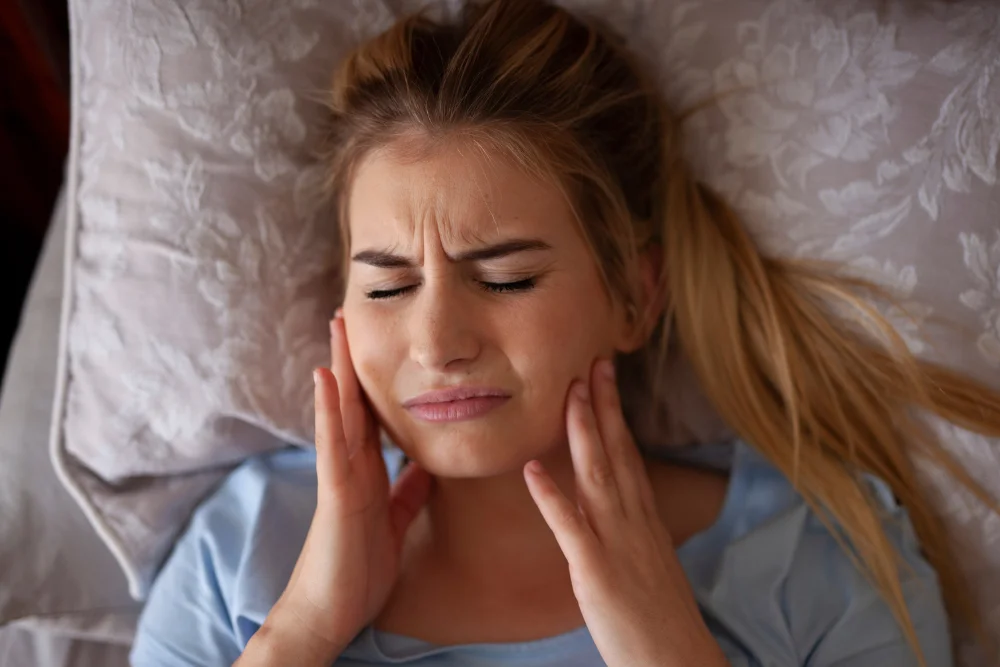Bruxism, commonly known as teeth grinding or clenching, is a prevalent yet often overlooked dental condition that can have significant consequences for oral health. Characterized by the involuntary grinding or clenching of teeth, bruxism can lead to various complications if left untreated. In this blog post, we’ll delve into the causes, symptoms, and treatment options for bruxism, providing valuable insights to help individuals understand and manage this condition effectively.
Causes of Bruxism
Stress and Anxiety
Psychological factors such as stress, anxiety, or tension can contribute to the development or exacerbation of bruxism, especially during sleep.
Malocclusion
Misalignment of teeth or jaws, also known as malocclusion, can result in uneven biting forces and lead to bruxism as the body attempts to find a more comfortable resting position for the teeth.
Sleep Disorders
Bruxism is often associated with sleep disorders such as sleep apnea or restless leg syndrome, as disrupted sleep patterns can increase muscle activity during sleep, including teeth grinding.
Symptoms of Bruxism
Tooth Wear
Grinding or clenching teeth can result in worn-down tooth surfaces, flat or chipped enamel, and fractures in dental restorations like fillings or crowns.
Jaw Pain and Muscle Tension
Individuals with bruxism may experience jaw pain, stiffness, or soreness, particularly upon waking in the morning or throughout the day.
Headaches and Facial Pain
Bruxism can cause headaches, earaches, or facial pain due to the strain placed on the muscles and joints involved in chewing and jaw movement.
Treatment Options
Mouthguards or Nightguards
Custom-fitted mouthguards worn during sleep can help protect teeth from damage caused by grinding or clenching.
Stress Management Techniques
Strategies such as relaxation exercises, meditation, or counselling may help reduce stress and alleviate bruxism symptoms.
Dental Correction
In cases where malocclusion contributes to bruxism, orthodontic treatment or dental procedures to correct misaligned teeth or jaws may be recommended.
Medications
Muscle relaxants or medications to manage underlying sleep disorders may be prescribed in certain situations to alleviate bruxism symptoms.
Conclusion
Bruxism is a common dental condition with potential consequences for oral health and overall well-being. By understanding the causes, symptoms, and treatment options for bruxism, individuals can take proactive steps to manage this condition effectively and preserve their dental health. If you suspect you may be grinding or clenching your teeth, consult with your dentist for a comprehensive evaluation and personalized treatment plan. Stay tuned for more informative posts on maintaining optimal oral health!

